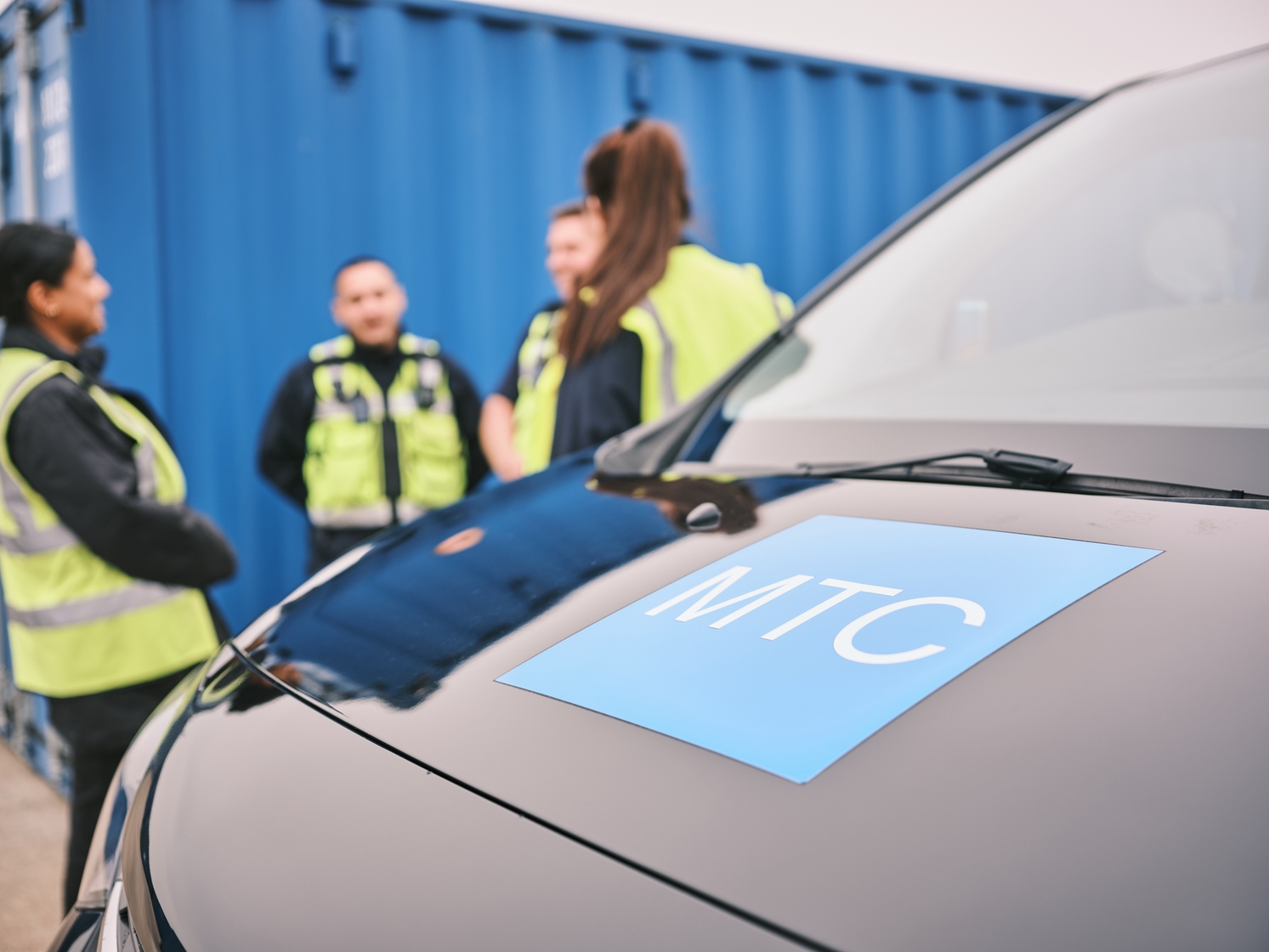MTC’s Carbon Reduction Plan 2024

2024 update – published November 2024
MTC Carbon Reduction Plan in full
MTC Carbon Reduction Plan November update
Commitment to achieving Net Zero
MTC is committed to achieving Net Zero corporate emissions by 2035 and to implementing decarbonisation initiatives at all its contracted sites to support public sector Net Zero objectives.
Carbon emissions footprint
This is MTC’s third reporting year, with 2021 as the baseline. Emissions have been calculated for MTC’s corporate operations following the methodologies laid out in the GHG Protocol Corporate Accounting and Reporting Standard[1], and Corporate Value Chain (Scope 3) Standard[2] and have utilised the UK Government’s emission factors.
| Periods covered: 2021 to 2023 | |||
| EMISSIONS (tCO2e) | 2021 | 2022 | 2023 |
| Scope 1 | 0.7 | 2.8 | 1.2 |
| Scope 2 | 6.9 | 4.4 | 3.0 |
| Scope 3* | 25.6 | 49.1 | 34.9 |
| Total | 33.2 | 56.4 | 39.0 |
| Scope 3: Employee commuting to contract sites | N/A | N/A | 113.4 |
| *Scope 3 includes corporate business travel, homeworking, T&D losses & well to tank emissions, waste and water usage. MTC employee commuting has been quantified for the first time for 2023, so is excluded from the like for like comparison and stated separately. Business travel associated with contracted services is monitored by MTC but not within scope of the Carbon Reduction Plan. Scope 3 transportation is not applicable as MTC does not contract any haulage or shipping services. | |||
Emissions reduction targets
MTC’s objectives are to reduce corporate Scope 1, 2 and 3 greenhouse gas emissions in absolute terms by:
- 25% by 2025 and;
- 50% by 2030 compared to a 2021 baseline.
- Net Zero by 2035
Current Carbon Reduction projects
Several initiatives are underway or recently implemented at MTC:
- MTC is working with Octopus Energy to roll out an initiative where employees may lease electric vehicles through salary sacrifice and change their home energy to a renewable energy supply. Addionally, the “Nearly New Scheme” offers second hand refurbished options to extend offering to lower salaried personnel.
- MTC has added energy awareness and wider sustainability training through its training platform.
MTC will also deliver a number of planned initiatives from 2024:
- Source renewable electricity at all sites where MTC is responsible for the electricity supply.
- Replace fossil fuel-based heating systems with air source heat pumps or other non-fossil fuel systems upon plant replacement where MTC is responsible for the heat supply.
- Move away from relying on employees based in the Midlands travelling to our Kent contract site, by moving towards a more local staffing model.
Net Zero principles for contract sites
In addition to actions on corporate operations, MTC will implement the following Net Zero principles at each of its contract sites, whose emissions are reported separately:
- Develop a bespoke decarbonisation strategy for each contract site adopted.
- Support all prevailing decarbonisation related Government initiatives and strategic goals.
- Implement best-practice energy management, including appropriate control of all Heating, Ventilation, Air Conditioning (HVAC) and lighting systems, while maintaining the ambient conditions specified in Government guidelines.
- Seek to make investments in cost effective measures to support best practice energy management, including but not limited to metering, automated controls, building fabric upgrades, high efficiency lighting and plant.
- Provide energy and waste awareness training for all site employees.
- Implement business travel policies to incentivise lower emission choices, such as video conferencing, public transport, walking and electric vehicle usage.
- Source renewable electricity at all sites where MTC is responsible for the electricity supply.
- Work with Government departments to implement onsite renewable energy generation technology, such as solar photovoltaics, solar thermal water heating and wind power.
- Implement a procurement policy to seek to use low carbon suppliers and products.
- Maintain a strategy of zero waste to landfill, with specified preference for the most resource efficient disposal routes.
Declaration
This Carbon Reduction Plan has been completed in accordance with PPN 06/21 and associated guidance and the Technical standard for Completion of Carbon Reduction Plans[3].
Emissions have been reported in accordance with the published Technical standard for Completion of Carbon Reduction Plans and the GHG Protocol Corporate Accounting and Reporting Standard and calculated using the appropriate Government emission conversion factors for greenhouse gas company reporting[4].
Scope 1 and Scope 2 emissions have been reported in accordance with Streamlined Energy and Carbon Reporting (SECR) requirements[5], and the required subset of Scope 3 emissions have been reported in accordance with the published Technical standard for Completion of Carbon Reduction Plans and the Corporate Value Chain (Scope 3) Standard.
This Carbon Reduction Plan has been reviewed and signed off by Chris White, Director of Health, Safety, Facilities Management and Property and SLT Sponsor of Social Mission focussed on sustainability and Ian Mulholland, Managing Director.
[1]https://ghgprotocol.org/corporate-standard
[2]https://ghgprotocol.org/standards/scope-3-standard
[3]https://assets.publishing.service.gov.uk/government/uploads/system/uploads/attachment_data/file/991625/PPN_0621_Technical_standard_for_the_Completion_of_Carbon_Reduction_Plans__2_.pdf
[4]https://www.gov.uk/government/collections/government-conversion-factors-for-company-reporting
[5] https://www.gov.uk/government/publications/academy-trust-financial-management-good-practice-guides/streamlined-energy-and-carbon-reporting